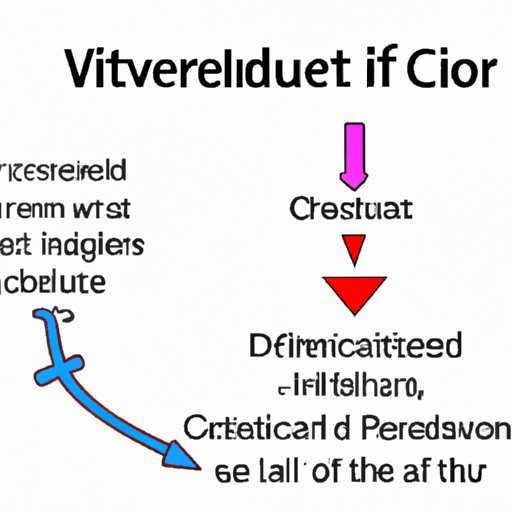
I. Introduction
When attempting to lose weight, one of the most common struggles people face is not knowing how many calories they should be consuming. Understanding caloric intake is crucial to achieve weight loss goals and maintain a healthy lifestyle.
II. Understanding the Basics of Caloric Intake for Weight Loss
Before counting calories, it’s important to understand the basics of caloric intake. Calories are a unit of measurement used to determine the amount of energy food provides to the body. The link between caloric intake and weight loss is simple; consuming fewer calories than the body burns results in weight loss. The three types of macronutrients- carbohydrates, protein, and fats- each have varying calorie content- four calories per gram of carbohydrates and protein and nine calories per gram of fat. Categorizing caloric intake into deficit, maintenance, and surplus determines the intake necessary for weight loss. A caloric deficit is necessary to lose weight, whereas an intake higher than maintenance calories will result in weight gain.
III. Counting Calories: How to Determine Your Optimal Intake for Weight Loss
Counting calories may seem daunting, but the importance of it cannot be overstated. A basic formula for calculating optimal intake is to multiply body weight by 11-13 (depending on activity level) for maintenance calories and subtracting 500-1000 for desired caloric deficit. Factors like sex, age, and height also influence optimal intake. There are numerous online tools and apps, like MyFitnessPal, to help with tracking caloric intake accurately.

IV. The Science behind Caloric Deficit for Effective Weight Loss
Caloric deficit is vital for effective weight loss and is achieved by consuming fewer calories than the body burns. A moderate caloric deficit of 500-1000 calories per day results in safe and sustainable weight loss. A severe caloric deficit can have numerous ill effects, such as decreased metabolism, nutritional deficiencies, and muscle loss.
V. A Beginner’s Guide to Measuring Caloric Intake for Weight Loss
Measuring caloric intake may seem daunting, but there are numerous ways. Some common options are tracking food intake in a diary, using measuring cups and spoons, and using a kitchen scale. Each option has its pros and cons, but the key to accurate measurement is consistency. Measuring portion sizes carefully is also necessary to ensure accurate caloric intake.
VI. Caloric Intake Calculator: Finding Your Ideal Number for Weight Loss
Caloric intake calculators are an excellent tool to find an ideal number for weight loss. Numerous types of calculators exist, but they all require basic information like age, height, weight, and activity level. After determining a baseline number, adjust intake based on progress and goals. For example, if weight loss stalls, try reducing caloric intake moderately.
VII. Boost Your Weight Loss Results with Smart Caloric Intake Choices
Choosing nutrient-dense foods is critical to achieving weight loss goals. Nutrient-dense foods provide the necessary fuel to the body to perform its functions. Examples of nutrient-dense food include fruits, vegetables, lean protein, and whole grains. On the flipside, high-calorie processed foods with minimal nutritional value sabotage weight loss progress. Portion control is also crucial to ensure that caloric intake remains within deficit levels.
VIII. Strategic Caloric Intake Tactics: Tips to Ensure Successful Weight Loss
Understanding hunger cues is significant to recognize emotional eating or boredom eating triggers. Staying ahead of hunger by having healthy snacks prepared and avoiding binge eating is also vital. Meal planning and preparation are useful for preventing impulsive food decisions. Consistency is key to successful weight loss; celebrating small victories and staying accountable is an excellent motivator. Lastly, when in doubt, asking for help from professionals like certified dietitians or personal trainers can make a significant difference in achieving weight loss goals.
IX. Conclusion
Counting calories may seem like a chore, but it’s essential when attempting to lose weight. Understanding the basics of caloric intake, measuring intake accurately, calculating optimal intake, and choosing smart caloric intake options are all vital to weight loss success. With consistency, determination, and patience, reaching weight loss goals is achievable. Start your weight loss journey today by taking small steps towards a healthier lifestyle.





